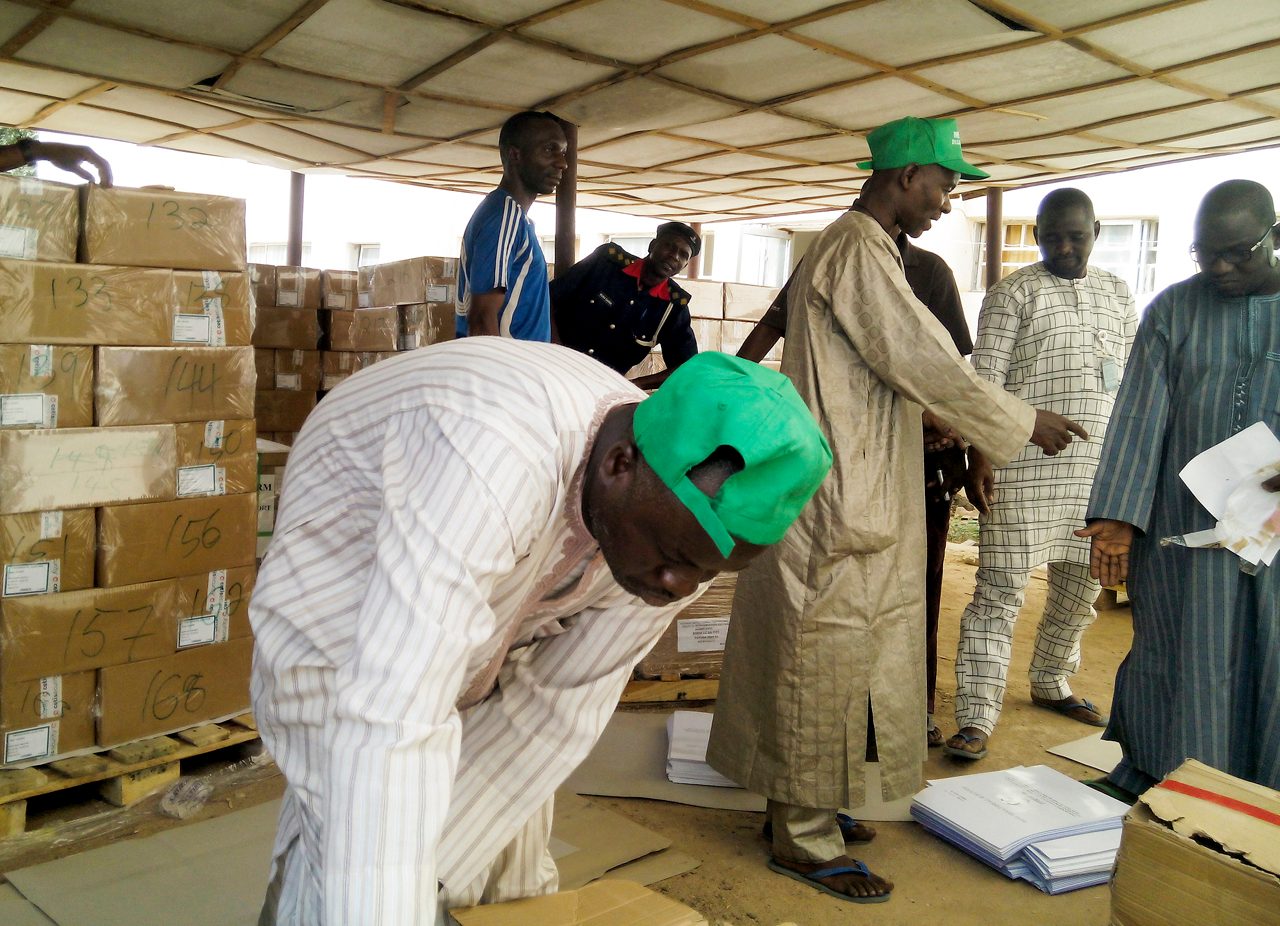SUMMARY
This is AI generated summarization, which may have errors. For context, always refer to the full article.

ABUJA, Nigeria – Africa’s most populous nation, Nigeria, votes for a new president on Saturday, March 28 in the most closely fought election since independence, framed by Boko Haram violence, economic woes and endemic corruption.
From megacity Lagos in the Christian south to cities across the Muslim north, polling stations were due to open at 0700 GMT, with 68.8 million of Nigeria’s 173 million people registered to vote.
President Goodluck Jonathan arrived by helicopter in his home town of Utuoke in southern Bayelsa state on Friday night, March 27, hoping for a second term of office despite stinging criticism of his record.
His main opponent, the self-styled scourge of government graft Muhammadu Buhari, was in Daura, northern Katsina state, eyeing a democratic return to power after a spell as military ruler in the 1980s.
In Daura, wicker brooms – symbol of Buhari’s All Progressives Congress (APC) – had been hung in the streets; in Utuoke, posters of the Peoples Democratic Party’s (PDP) umbrella and Jonathan.
Observers, from the European Union and United Nations to the African Union and United States, were in place – a sign of international interest but also to ensure a free, fair and transparent contest.
Results from both the presidential and parliamentary vote being held at the same time are expected within 48 hours of polls closing, according to the electoral commission.
Democracy and security
Previous polls have been blighted by rigging but there are hopes that the first ever use of handheld technology to read biometric voter identity cards will cut fraud.
Jonathan’s PDP has been in power since Nigeria returned to civilian rule in 1999 but the result is far from clear this time, with the opposition in its strongest position ever.
The president’s until recent inability to tackle Boko Haram has dominated his tenure and although Nigeria became Africa’s largest economy on his watch, global oil shocks have hit the country hard.
“I cannot recall an election more important than this in the history of our nation,” the president said on Thursday, March 26.
Chidi Odinkalu, chairman of Nigeria’s National Human Rights Commission, said although the election campaign was far from perfect, there were encouraging signs for democracy. (READ: Boko Haram fighters told to ‘kill wives’)
“You cannot sit down now and say General Buhari will win, or President Jonathan will win,” he told Agence France-Presse (AFP).
“We are going to have to sit this out and wait and have butterflies in our stomach… and that I think is a wonderful thing.”
Security has been tightened across Nigeria, particularly in the devastated northeast, where six years of Boko Haram violence has left more than 13,000 people dead and 1.5 million homeless.
Nigeria, Niger and Chad, supported by Cameroon, have recently claimed a series of successes, recapturing rebel-held territory. (READ: Nigeria vows to crush Boko Haram)
On Friday, Nigeria’s army claimed to have retaken Gwoza, in Borno state, from where Boko Haram leader Abubakar Shekau proclaimed a caliphate last year and which was considered the group’s base.
Some critics sensed a political motivation to the announcement, as well as the six-week postponement from February 14 of the election on security grounds.
There remain fears that Boko Haram will mount suicide attacks and bombings, including against polling stations, which has prompted heightened security measures.
Divided opinion
Nigeria’s capital was eerily quiet on Friday, with major expressways that surround the central district largely empty and military checkpoints on major roads leading into the city.
In the market opposite the Nyanya bus terminal, bombed twice by Boko Haram within two weeks last year, opinion was divided about who would win.
“I will vote. This is my country. I have to vote,” said Esther Anthony, 23, who hails from Anambra state in southern Nigeria.
“We have to vote for our president because he has been there. He has been trying, so we have to vote him back… he has done enough.”
But Abdullahi Usman Chitta Michika, who works in real estate, said: “We are tired of… bombs everywhere, insecurity, kidnapping and the rest.
“It is the negligence of the president,” the 31-year-old added, warning that any sniff of vote-rigging will see protests on the streets.
Demonstrations will be keenly watched, with explosive violence – often along religious or ethnic lines – never far away in Nigeria.
In 2011, some 1,000 people were killed in post-poll violence after Jonathan beat Buhari, and Odinkalu said more than 30 of Nigeria’s 36 states and capital territory of Abuja have already seen clashes.
Shops and offices closed early as a precaution on Friday, while long queues formed at filling stations and people stocked up on water and groceries. – Ben Simon, with Phil Hazlewood in Lagos, AFP/Rappler.com
Add a comment
How does this make you feel?
There are no comments yet. Add your comment to start the conversation.